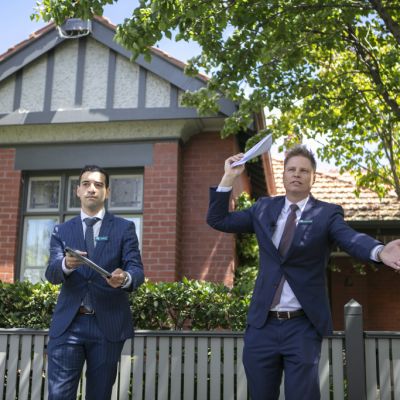How to choose the right real estate agent to sell your property

Selling a property is a big life moment and having the right agent by your side can make or break both your experience and results.
Whether you’re planning to sell an investment unit or need to offload a beloved family home, there is so much to gain from choosing well – great agents positively impact the entire property selling process.
Don’t leave this crucial decision to the last minute. Here are four essential tips to engaging the right real estate agent for you and your property.
1. Research and results are king
Start researching potential agents like you would search for property listings. Head to Domain.com.au/real-estate-agents/ to see a list of agencies with records of how many properties they’ve sold in your area.
This enables you to see who has the largest market share in your suburb. You can then begin looking at who within an agency is the most active, with one caveat:
“Does the agent you’re looking at have so many listings that you’re going to be one of say, 35, or would you rather be one of a smaller group so you have the agent’s attention and focus?” explains Col Bernasconi of McGrath Long Jetty.
“Your result will mean more to the agent with a manageable amount of listings, and there’ll also be less leakage of potential buyers”.
Another element to research is looking at recent comparable sales to discover which agents are nabbing excellent results for their vendors.
Ideally, you’ll want to shortlist agents with proven track records of great results in your area for comparable properties. If the information isn’t readily available, don’t be shy about asking for exactly what you want, like sale prices and time on market.
Ultimately, the proof is in the pudding: agents are notorious for putting on the charm, but you’re after results. To look at sold listings, click here.
2. Local knowledge matters
Agents local to your area will be able to give you valuable insights about your neighbourhood. They’ll usually possess acquired knowledge of what’s recently sold in your area, what’s coming up for sale and the competition you’ll be up against once you list.
This area-specific knowledge also helps them in honing in on your target demographic, which can impact everything from marketing material and conversations at open homes to how they assess and respond to situations that may arise, like a property sitting on the market.
3. Be comfortable with an agent and how they operate
Once you’ve shortlisted a couple of agents, it’s time to interact.
There are two good ways of learning more about an agent’s character and way of working: #1 enquire online or call about properties similar to your own, which will help you see how an agent responds and follows up leads; and #2 the ‘mystery buyer’ method, where you head to a couple of their open homes to get a feel for their service and see them in action.
“If you enquire about a property and the agent doesn’t ring you back, they ring you back three days later or their assistant rings you back, that’s a pretty bad sign,” says Bernasconi.
“For an agent to represent your home, you want them available to talk to buyers quickly, answer queries and alleviate any concerns they may have.”
When at an inspection, Bernasconi says to look at how the agent engages with potential buyers. Are you a fan of their communication style and find them knowledgeable?
He also advises to pay attention to how they ‘sell’ the property to you as a potential buyer. Were they welcoming? Did they explain the features of the property? Did they talk to the positives of the area? Note also if and how they follow up post-inspection.
Connecting with an agent is important, as you’ll want to feel comfortable around them. This helps build trust, which creates a great working relationship when it’s time to sell your own home.
“You want someone who is personable, genuine and knowledgeable,” says Bernasconi. “But you also want someone who is honest and interested in creating a non-toxic team mentality based off of their expertise and the market, not unrealistic promises.”
4. Request an appraisal and discuss commission
It’s in your best interests to request an appraisal from two or three agents you’re considering working with. This will help you understand the market value of your property, from their perspective. Cross reference this with your earlier research on what the recent comparable sales are in your area.
Once you’ve honed in on your top candidates, you may then request the agents put together their selling strategy for you by way of an inspection report and agency agreement. This will enable you to see how they plan to sell and market your specific property.
The document usually includes a property valuation, the listing price they’d suggest and why, what marketing mix is recommended, transparency around costings and whether or not they suggest auction or private treaty.
You’ll also want to discuss and negotiate their commission rate. Let them work for your business and see what they can offer you.
However, a lower commission isn’t always automatically better – cheaper agents may focus on just getting a house sold, as opposed to getting you the best price. Try to look at the complete picture of what they can do for you. For information on how much it costs to sell a house, including agent commission rates, click here.
With these four tips in your agent-finding arsenal, you’re setting yourself up for a great result. Best of luck.
We recommend
We thought you might like
States
Capital Cities
Capital Cities - Rentals
Popular Areas
Allhomes
More










